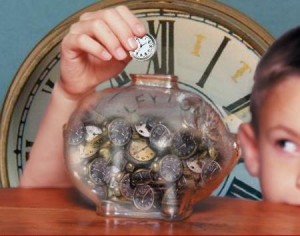 Spring ahead, fall back. This Sunday is the spring ahead Sunday as we move to what we Americans call Daylight Saving Time. In the other parts of the world where clocks are changed twice a year, they call it summer time. Horário de Verão, summer hours, my friends in Brazil say, except that they went off summer hours a few weeks ago, it being nearly fall in the southern hemisphere. It gets complicated.
Spring ahead, fall back. This Sunday is the spring ahead Sunday as we move to what we Americans call Daylight Saving Time. In the other parts of the world where clocks are changed twice a year, they call it summer time. Horário de Verão, summer hours, my friends in Brazil say, except that they went off summer hours a few weeks ago, it being nearly fall in the southern hemisphere. It gets complicated.
As an early riser, I am going to miss the gray light of dawn that has been greeting me recently as I leave the house each morning, but soon enough Becky and I will be enjoying long evening walks as the summer sun sinks low in the western sky. All in all I like Daylight Saving Time.
We Philadelphians take pride in the fact that the idea of Daylight Saving Time was first proposed by Ben Franklin. Of course, he was living in Paris at the time and it would take another hundred years or more for anyone to take the idea seriously. But by the 1920’s most Americans were enjoying Daylight Saving Time (though those farmers in Indiana fought the idea until finally surrendering to the inevitable just a few years ago). From sometime in mid-February until the first part of April people in North America, Western Europe and parts of Australia and Latin America spring forward to or fall back from Daylight Saving Time – or Summer Time as most others call it. We don’t think much about it.
But I have been thinking about the idea of saving daylight. In a way, we can no more save daylight than we can save beauty or joy or love. There’s no container to hold it, no seal to keep it from seeping away. Because of the way the earth makes its annual journey around the sun, the time between sunrise and sunset this Sunday will be 2 minutes and 38 seconds longer than on Saturday. By moving our clocks ahead one hour we hope to be able to enjoy an additional one hour, two minutes and 38 seconds of daylight at the end of the day on Sunday rather than at the beginning of the day. Early risers may grumble a bit, but all in all most of us like the plan.
But we haven’t saved any daylight. At best we have shifted it from morning to evening.
Saving really is a particularly American habit that has served us well in many ways, but sabotages us in other ways. Money can be saved and, within limits, should be saved. For college educations and retirements and this summer’s vacation. But for all our time saving devices and schemes, time cannot be saved. We can change our clocks so that we enjoy more daylight after work than before work, we can push a button on the dishwasher so that we can watch television instead of scrubbing pots, but we have saved no time. Time, like beauty, joy and love is a gift from God to be experienced, savored and, yes, wisely used. The Apostle Paul advises the Ephesians to make the best use of their time.
Jesus told a story about a foolish man who was always more interested in saving than enjoying and what became of him. In the story, God himself calls the man a fool.
According to my by then sprung-ahead watch, the sun will set at 7:04 on Sunday evening. Just enough time for Becky and me to take long walk after an early supper. Seems like a wise use of the time. Can’t save any daylight, but we can enjoy it as a gift from God.
See you Sunday
